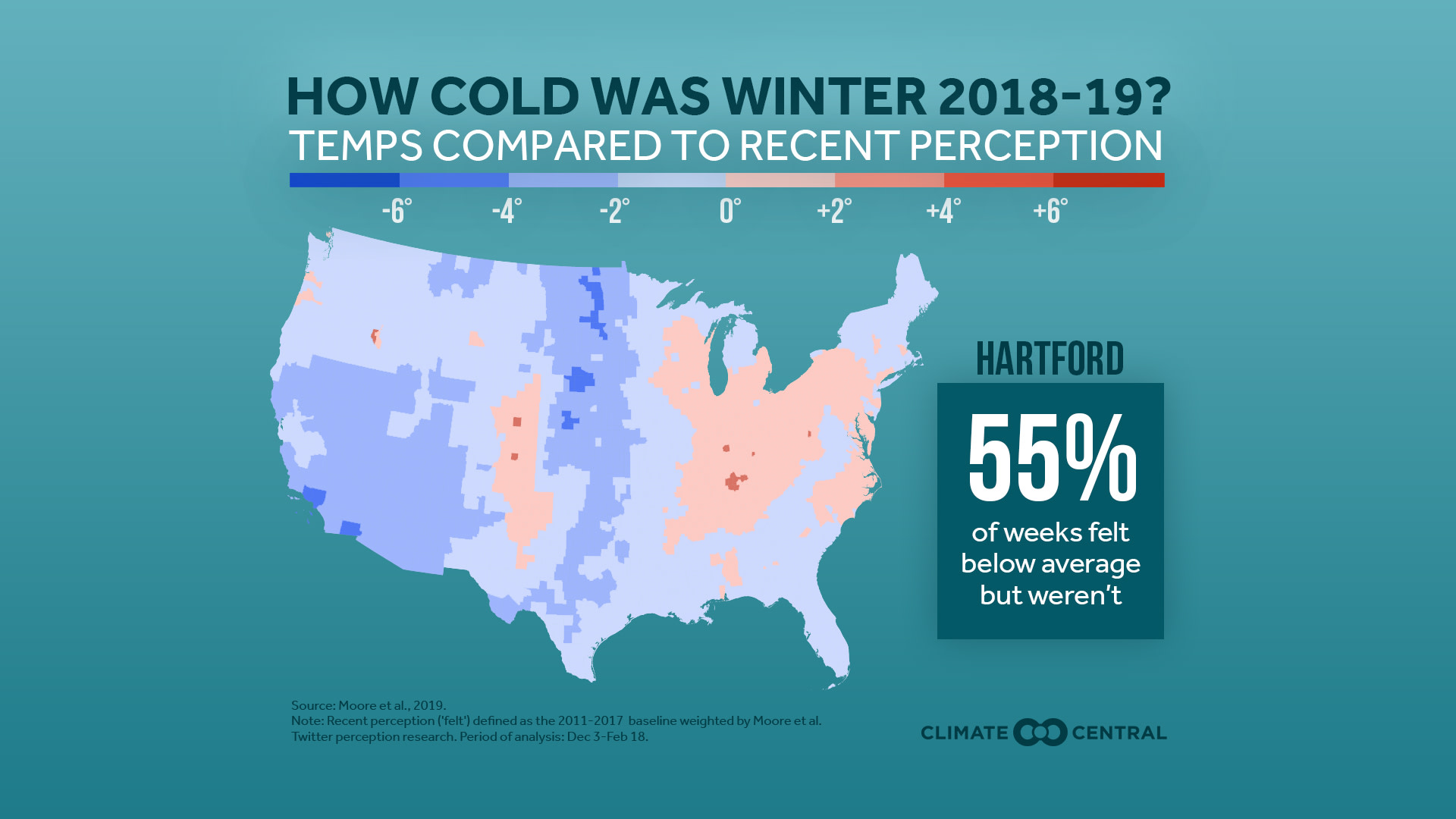From -50°F wind chills in the Midwest to exceptional snow in the Southwest, it’s been a winter of extremes. But in historical context, this winter was not exceptionally cold; nationally, December and January temperatures were warmer than the 20th century average. So why did people notice the cold so much? A recent study may have the answer, showing that our sense of “normal” is limited to the last several years.
Published on Monday in PNAS, the study finds that people largely compare temperature to the most recent two to eight years. The research team — led by Dr. Frances C. Moore of the University of California, Davis — studied these perceptions by analyzing billions of U.S. Twitter posts. People do tweet about unusual temperatures, but more so if those temperatures are unusual relative to recent years. Even when current temperatures far exceed the long-term average — as has often been the case with climate change — fewer people take notice if the temperatures are similar to last year's. According to the authors’ op-ed piece, we may resemble the fabled frog that cannot recognize that the pot it’s in is slowly boiling.
Read the full op-ed: The data is in. Frogs don’t boil. But we might.
Climate Central worked with the researchers to apply these findings to our recent winter. As shown in the bottom graphic, this winter was often colder than the 2011-2017 adjusted baseline, which reflects our recent experience. But when compared to a historical baseline from 1880 to 1929, this winter was warmer than average, particularly in the East and Mountain West. As a result, people in 159 of our 239 contiguous U.S. locations perceived more cold weeks than this winter actually had. Residents in Hartford, Connecticut and Springfield, Massachusetts perceived over half of the winter to be colder than the record showed.
As temperatures continue to rise, shifting seasons and leading to more record heat than cold, will we notice the fingerprints of global warming? As the authors observe, we all must “check our own perceptions against the raw facts of climate change.”
MORE INFORMATION
Study: Rapidly declining remarkability of temperature anomalies may obscure public perception of climate change
Lead Research Contact: Dr. Frances C. Moore, University of California, Davis (fmoore@ucdavis.edu)
Methodology: Winter temperatures (December 3-February 18) and weekly county-level recent and historical baselines were obtained from the researchers of the original study. The historical baseline is defined as the average winter temperature from 1880-1929. The recent baseline is a weighted average of winter temperatures experienced between 2 and 8 years ago (i.e. 2011-2017). The weights used are estimated in the original paper using changes in the volume of Tweets about weather to infer how people’s definition of normal weather changes over time.
